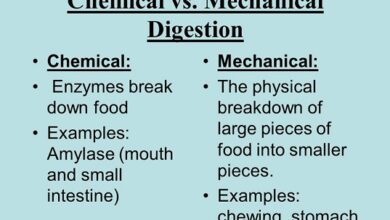Benefits of eating organic food Disadvantages and identificaiton
Oraganic and inorganic food
In this article we will provide you the benifits of eating organic food.
Organic foods
They are cultivated in a natural way, preserving the conditions of nature, without the use of pesticides or chemical fertilizers. The purpose of this is to protect the crop and the health of the body.
Some examples of organic foods are fruits, vegetables and legumes, but it is possible to find beef, poultry and fish being cared for in the natural creation process. Thus, they are free of hormones, antibiotics and other substances used in the industrial sector to ensure preservation on a large scale.
Organic foods must undergo specific planting processes, with worm farming, organic fertilizers and other natural cultivation tools.
This process is monitored by the Ministry of Agriculture and, if everything goes well, the product receives a certification seal from the agency, attesting that it is an organic food.
Inorganic foods
Inorganic foods are modified by producers, having their natural composition altered . Their purposes are high yields, hardiness and forced adaptation to climates and environments.
This type of production is only possible from the use of synthetic pesticides and pesticides, often at high rates. However, unfortunately, this can cause damage to the health of the soil, the fauna and the consumer, and the damage appears in the short term, but also in the long term.
They are cultivated in a natural way, preserving the conditions of nature, without the use of pesticides or chemical fertilizers. The purpose of this is to protect the crop and the health of the body.
10 incredible benifits of eating organic food
Below are the benifits of eating organic food
1 – Complete absence of pesticides
One of the great villains of a healthy diet today is the presence of pesticides in cultivated foods, whether due to the presence of fertilizers or synthetic pesticides. Organic food treats the soil, fertilization and cultivation of food through techniques that are non-aggressive to the food itself, respecting the land where it is produced.
2 – Explores the characteristics of the Soil
Following this respect and care for nature in food production, organic food cultivation techniques aim at a more accurate care of the soil, valuing mainly its fertilization for a longer time. This includes the use of natural fertilizers, made from the food taken from them, in addition to other sources such as egg shells and coffee grounds.
3 – Reduces levels of environmental pollution
Chemicals forcefully placed in the soil are harmful not only to the growing site itself and food, but to the entire environment. Water is also polluted, and even the air can carry these chemical materials, carried to other regions that cannot even grow food. Here, organic food helps restore balance, especially in communities with small farmers.
4 – Ensures water quality
What we say about synthetic fertilizers polluting water is not for nothing. These compounds reach the groundwater, which in turn takes these unsuitable substances to the rivers, and these to the rains. As the natural processes of organic foods do not take chemicals, care purifies the water that passes through the soil.
5 – It reinforces the local trade of small producers
This is a benefit not only for health, but for society as a whole. Organic food comes from small producers, sometimes independent, sometimes united in cooperatives that aim at a healthier sharing of profits. When you invest in these small producers, the whole community benefits.
6 – Facilitate the cleaning of the body
In theory, agro-industrial foods should have better quality, preserving the flavor of foods. However, in addition to losing much of the original taste, many people end up contracting other diseases due to the presence of pesticides. Foods from organic procedures really explore the nutritional benefits for our body.
7 – Increases the shelf life of food
Organic foods have greater durability outside the in natura environment . When cultivation is done correctly at all stages, growers can harvest at the perfect time to offer to customers, and customers can appreciate the options for much longer. In this way, it is possible to think about fair purchases for more days than usual when it comes to agro-industrial versions.
8 – They also have their own quality seals
One of the most obvious prejudices when it comes to organic production is the origin of the food. Many are suspicious of small producers, of how they take care of food, while there are large companies in the agro-industrial segment. Fortunately, for these producers there are also quality seals that guarantee the quality of organic products, generating the confidence they need in their sales.
9 – The flavors are more intense
With the lack of fertilizers and other elements that end up harming food, its organic versions bring all the flavor to its best potential. When sold fresh, it is a unique delicacy, and it is curious that they have become rarer. If you are looking for more intense dishes, organic foods will offer everything you need.
10 – Encourages Biodiversity
With a greater incentive to care for the soil, water, and the plants themselves, organic environments are great for promoting the local fauna and flora. In communities with several small producers, biodiversity makes the region even more beautiful and pleasant to live in.
Disadvantages of Organic food
Wondering what are the downsides of organic food ? Both the final consumer and rural producers are affected by them. The production of this type of food takes longer and is done on a smaller scale. In addition, it requires more labor, and harvesting takes longer — due to the demand for greater attention to assertively avoid pests and deficiencies.
All this directly affects the price of products, which are even more expensive than conventional ones. In addition to these factors, organic agriculture needs more physical space for cultivation.
How to identify organic foods?
An organic food is one that was produced in a natural way, without the use of pesticides, transgenics and synthetic fertilizers. However, they are more difficult to find in the markets and, when available, have a higher cost due to production.
Their demand is greater lately because they bring more health benefits. According to nutritionist Iara Waitzberg Lewinski, in general, organic foods are fresher and juicier.
And to try to identify whether or not a product is organic, Iara lists some tips and facts on the subject:
- Look for a trusted retailer: This is because the characteristics of organic food cannot be easily detected and only a few people with a more refined taste are able to distinguish the fresher and more intense flavor of organic food, especially fruits and vegetables.
- Don’t get attached to the size : There is a myth that organic food would be smaller compared to the same food grown with pesticides, however it is not uncommon to see organic fruits and vegetables as large as those that do not follow this type of cultivation.
- Look for the certification seal : Unless the consumer knows the producer and the origin of the food, the only way to have the guarantee of an organic food is with the presence of the identification seal of this means of production. The seal in question is the one granted by the Brazilian Organic Conformity Assessment System (SisOrg), a body that is responsible for accrediting and inspecting products that have this origin.
- What about organic milk? A study released by the Journal of Agriculture and Food Chemistry pointed out that organic milk can be identified through isotopes in its formula, but only scientists were able to compare the version with and without pesticides.
- You can eat even the peel: Organic foods can be consumed in full, that is, peels, seeds and stalks can also go to the table. These parts of food are normally discarded by most people, which is a great waste, as they are edible parts rich in dietary fiber, vitamins and minerals.




